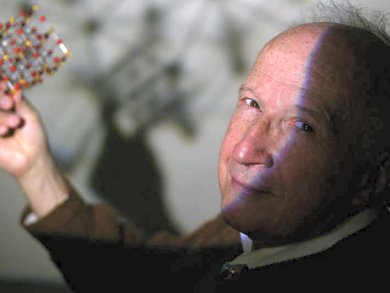The 2011 Nobel Prize in Chemistry was awarded to a materials scientist, Dan Schechtman, for his work on quasicrystals. In the last decade, only four Nobel Prizes in Chemistry have been awarded for what could be termed “pure” chemistry, and five awards are for work that overlaps with biology.
In his Editorial in Angewandte Chemie, Roald Hoffmann, Nobel Prize in Chemistry 1981, Professor Emeritus, Cornell University, USA, argues that areas such as biochemistry and molecular biology are as important to chemistry as traditional mainstream areas in physical, organic, and inorganic chemistry. He says, “Disciplines are human constructions—the conservative, compartmentalizing affliction of academia. The world is one, and our best minds and hands have moved with facility across disciplinary lines, using tools of chemistry to chart emerging territory in biology. And vice versa.”
Roald Hoffmann also discusses what exact purpose the Nobel Prizes serve, and how they are perceived, especially with regard to inspiring young people. He writes that young people see these scientists rewarded—they see the grand party that the Nobel Foundation has learned to throw with more than a century of experience. “Oh, how I would like to be there!”, the young people think. “You must work hard, but you can be there. This dream will get them much, much further than that other seductive pull of copying LeBron’s slam dunk, or Maria Carey’s song.
- What, Another Nobel Prize in Chemistry to a Nonchemist?
Roald Hoffmann,
Angew. Chem. Int. Ed. 2012.
DOI: 10.1002/anie.201108514
See also:
- Three Main Phases of Quasicrystals
The discovery of quasicrystals brought about a paradigm shift in chemistry and materials science and is celebrated in a special issue




